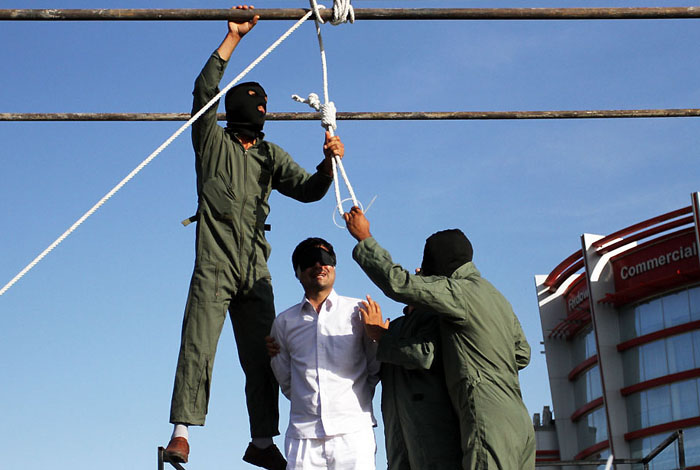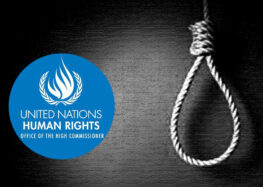MPs Urge Judiciary to Halt Executions for Minor Drug Convictions Until Death Penalty Law is Amended

The Iranian Parliament’s Legal and Judicial Affairs Committee is calling on the judiciary to halt executions of prisoners convicted of petty drug offenses until a pending amendment to the law that could save thousands of prisoners on death row is passed.
“We expect the amendment to the Law Against Drug Trafficking will pass with a high number of votes because the majority of MPs are in favor of it,” said the committee’s Deputy Chairman Mohammad Kazemi during an interview with Shargh newspaper on July 5, 2017.
“Until the amendment’s final ratification, the lives of some prisoners will be in the balance,” he added. “Their lives could be spared when the [new] law is applied retroactively. For this reason, we have requested the judicial branch to halt these executions.”
Iran has one of the highest per-capita execution rates in the world. At least 567 people were executed in 2016, down 42 percent from the 977 who were in executed in 2015. The vast majority of executions were for petty drug-trafficking crimes, including for carry small amounts of illegal drugs.
A proposal that could dramatically reduce execution rates for drug-related crimes has been floating in Iran’s legislature since 2015. A final vote scheduled on June 7, 2017 was postponed until after the summer recess in mid-July after anonymous “security and government agencies” requested a delay.
If approved by Parliament and the Guardian Council, the revised law could save the lives of up to 5,000 prisoners on death row in Iran for drug-trafficking and related crimes. The new law would make the death penalty only applicable for “organized drug lords,” “armed traffickers,” “repeat offenders” and “bulk drug distributors.”
According to Deputy Chairman Kazemi, the Legal and Judicial Affairs Committee is currently working on last minute changes in response to complaints from the judiciary that the amendment should be clearer on what quantity of drugs constitutes trafficking.
Mohammad Ali Pourmokhtar, another member of the committee, told Shargh he was certain the amendment would be passed, but until then, “it needs to be hammered out a bit.”
Many judicial authorities have opposed limits on the death penalty, claiming such an action would weaken Iran’s resolve in the fight against the country’s growing drug crisis.
The latest opposition came from the head of the prosecutor’s office in Khorasan Razavi Province, Ali Mozaffari, who accused Parliament of trying to appease Western governments that have criticized Iran’s high rate of executions.
“The Western governments will not stop their animosity towards the Islamic Republic of Iran even if you make a thousand changes to the law,” said Mozaffari at a drug enforcement conference in Mashhad on July 5.
“The death penalty for drug crimes is on the basis of punishments for ‘Corruption on Earth’ commanded by the Quran and Islamic law,” he added. “It is in the interest of human society.”
General Mohammad Masoud Zahedian, the head of the Anti-Drug Police Force, also told the conference he was opposed to the proposed amendment.
“Eliminating the death penalty for drug criminals is not going to be beneficial,” he said. “It will cause some problems.”
Some of the amendment’s supporters responded that the death penalty will not be completely eliminated as an option in the fight against drug trafficking.
“The proposal does not remove capital punishment entirely,” said MP Pourmokhtar. “Instead our emphasis is on eliminating excessive punishments that victimize small-time dealers rather than major traffickers.”
Some conservatives have conceded that the death penalty has failed as a preventative measure against drug trafficking.
“We are looking to see what punishments can replace executions with greater effectiveness for certain criminals,” said Justice Minister Mostafa Pourmohammadi on October 29, 2016.
“Of course, the death penalty will still be enforced, but not to the extent we have today,” he added.
On the other hand, Judiciary Chief Sadegh Larijani has not only opposed reducing the death penalty for drug crimes, he has also asked judges to expedite execution orders.
“We don’t think that the laws concerning drug trafficking are revelations from God,” said Larijani on September 29, 2016. “They are man-made laws that have not had perfect results. But it’s wrong to say that executions have had no effect.”
“If the judiciary had not been strict, we would have been in a far worse situation,” he added.






